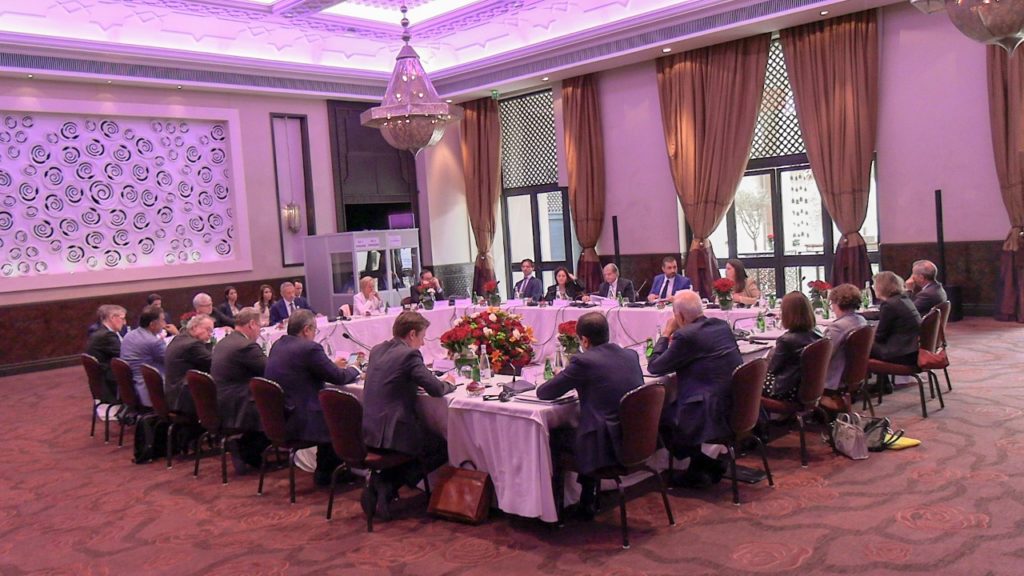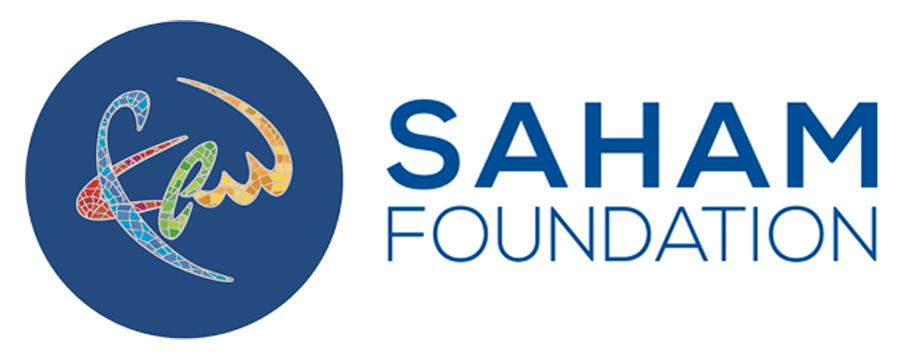06.03.2020, STAKEHOLDER DIALOGUE
Organization of a joint round table between the Saham Foundation and the BTS Foundation on the theme of:
"The role of civil society actors in socio-economic development and the integration of young people from countries neighboring the European Union"
How can the two parties learn from each other others to strengthen their own economies through increased partnership with the EU? It is in Marrakech that the Foundation Saham and the Bertelsmann Stiftung discussed possible solutions to achieve more social and economic cooperation intensive.
The European neighborhood policy concerns economic, social cooperation and EU policy with 16 of its closest neighbors to the south and east. Morocco, the Tunisia and Jordan to the south and Moldova, Ukraine and Georgia to the east exchange up to 70% of their imports and exports with the EU. Conditions favorable trade and intelligent integration into the internal market of EU are important for these countries if they want to modernize their economy and create more jobs and better life prospects, especially for the benefit of of their young. These six EU neighboring countries have signed several trade agreements bilateral with the latter. The networking of actors from these countries and the exchange of knowledge between them on commercial relations based on partnership with the EU, are not only a concern of the European project "Strategies for a new EU neighborhood" from the Bertelsmann Foundation, but have was also an important topic of discussion, during the exchanges that took place between stakeholders in Marrakech on February 14 and 15, 2020. The Foundation Moroccan Saham and the German Bertelsmann Stiftung invited 25 renowned representatives / decision-makers and experts from the business world, policy, universities and civil society, to a dialogue devoted to the theme "Bringing the EU and its neighbors closer - Promoting civil society actors in the socio-economic cooperation and youth integration work ".
In recent years, Ukraine, Georgia and Moldova have concluded a free trade, described as deep and broad with the EU. Tunisia negotiates agreement similarly, Jordan shares a free trade area with the EU and Morocco enjoys of "advanced status" with the EU. The three Eastern European countries have so far had both positive and negative experiences in opening up their markets. As a positive trend, one participant noted that the adoption of EU export production standards fostered the rule of law and increased the competitiveness in European and international markets, attracting more investments and thus creating more jobs.
Increase trade, create jobs, strengthen society civil
Another idea debated is that trade treaties and relations can be part of a common positive vision aiming at the development of shared prosperity between Europe and its neighboring regions. To this By the way, a contribution could be made through a communication broader involving more people and civil society organizations, activating in the countries concerned.
In view of demographic change, technological progress and peace social, it is very important that jobs and future prospects are created for the benefit of young people in the Mediterranean region and in the neighborhood European. Knowledge of projects devoted to this issue, learning mutual of the other actors who worked on these projects and their networking, have guided the debate on strategies for growth, work and prosperity.
For example, the Saham Foundation drew attention to its new project, which aims to promote the social and professional reintegration of young people (NEET) (which are neither in education, employment or training) by offering them a integrated center, intended to provide them with targeted vocational training during the day, as well as psychological support services and cultural activities and sports. The Spanish Bertelsmann Foundation has demonstrated its experience in project in Spain using work-linked vocational training as a tool to reduce youth unemployment. Reports have been shared about successful concepts, having been implemented by business schools projects in Jordan, as well as within the framework of the programs of a national investment for young SMEs in Morocco. European representatives mentioned EU programs such as Erasmus +, EU4Youth, as well as projects twinning around education reforms.
As various proposals have clearly shown, a widening of options of vocational training, of a more practical nature, is likely to more young unemployed in future-oriented jobs. In the same time, criticism has been expressed that in many countries neighbors, the idea that one can only acquire social prestige if one carries out university studies, is still admitted.
Increase trade, create jobs, strengthen society civil
The various aspects relating to migrations between the southern neighborhood or East and the EU, the growing socio-economic interdependence of the southern neighborhood vis-a-vis the countries of sub-Saharan Africa, as well as the challenge of technological and economic power of China, were also considered as so many factors likely to strengthen social relations, economic and political relations between the European Union and the countries of its neighborhood immediate.

© Abdelmohcine Benhlal
To deepen the subject, the organizers of this dialogue of the parties
stakeholders propose an information document which provides overviews
additional, in-depth information, background news and
explanations of the issues discussed.

